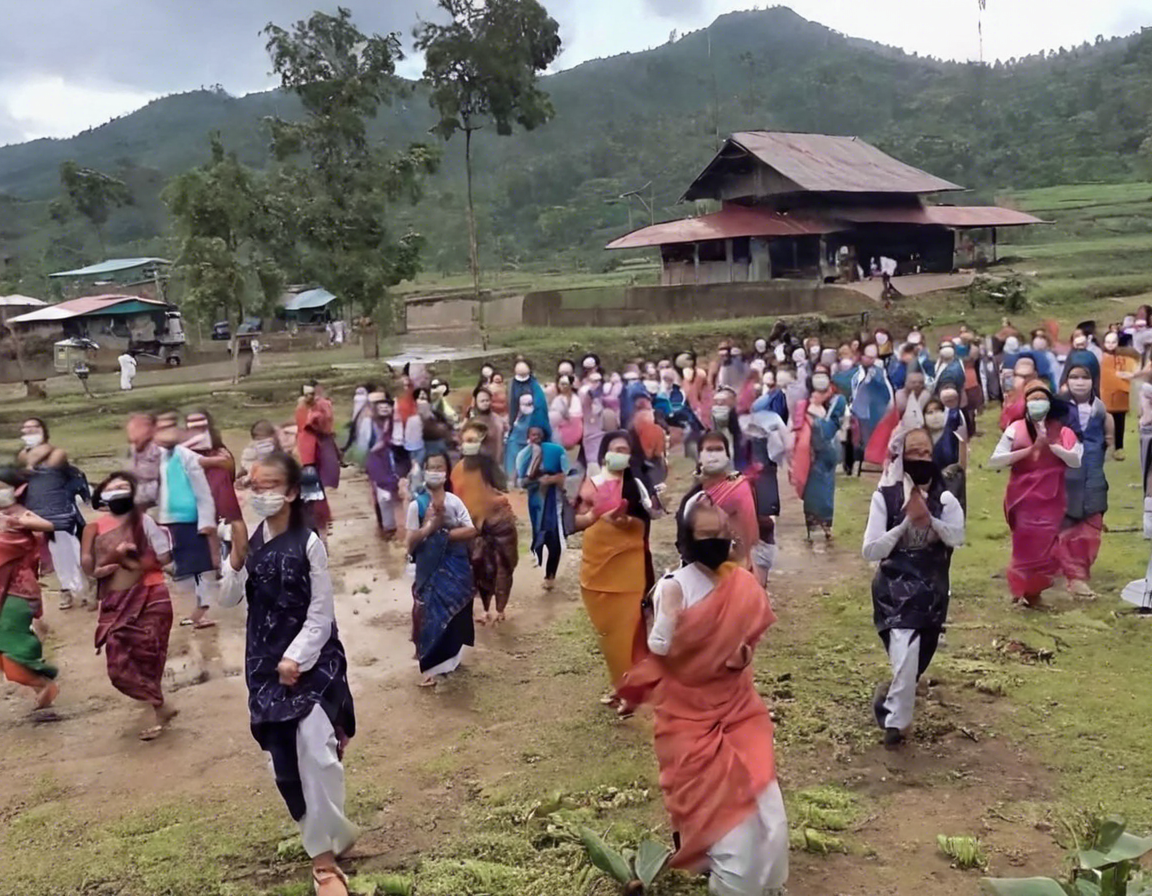In recent weeks, a video from Manipur, a northeastern state in India, has gone viral on social media platforms, sparking a surge of conversations and controversies about its authenticity, ethical implications, and broader societal impact. The video, which purportedly shows a group of security personnel abusing and manhandling a civilian, has ignited public outcry and heated debates across various platforms. As discussions about the video continue to proliferate, it is essential to delve deep into the intricacies surrounding this controversial video, dissecting its potential implications and exploring the multifaceted aspects of the issue.
The Context: Understanding the Manipur Viral Video
At the heart of the controversy lies a video that captures a group of individuals in uniform, allegedly members of the security forces, engaging in physical violence against a civilian. The video, originally shared on social media, quickly gained traction, drawing widespread attention and condemnation from various quarters. While the authenticity of the video remains a subject of debate, its circulation has raised critical questions about the use of force, accountability, and transparency in conflict zones and regions with a history of unrest.
The Ripple Effect: Social Media and Viral Content
The pervasive nature of social media platforms has the power to amplify content rapidly, turning local incidents into global phenomena within minutes. The Manipur viral video serves as a poignant example of how a single piece of content can transcend geographical boundaries, mobilizing individuals and organizations to demand justice, accountability, and transparency. The video’s virality has underscored the role of social media in shaping public discourse, holding authorities accountable, and influencing narratives around contentious issues.
The Ethical Dilemma: Balancing Transparency and Sensitivity
One of the key dilemmas posed by the Manipur viral video revolves around the ethical considerations of sharing sensitive content online. While social media can be a potent tool for raising awareness and catalyzing social change, it also raises concerns about privacy, consent, and the potential repercussions for individuals featured in such videos. As society grapples with the ethical implications of sharing graphic content, there is a pressing need to strike a balance between transparency and sensitivity, respecting the dignity and rights of all parties involved.
Legal Ramifications: Navigating the Legal Landscape
The dissemination of the Manipur viral video has triggered discussions about the legal framework governing the use of force by security personnel and the mechanisms in place to hold accountable those who violate human rights. As calls for investigations and disciplinary actions gain momentum, the legal ramifications of the video loom large, underscoring the need for a robust and impartial justice system that upholds the rule of law and safeguards fundamental rights.
Community Response: Mobilizing for Change
In the wake of the Manipur viral video, communities, activists, and civil society organizations have rallied together to condemn the alleged actions depicted in the video and demand justice for the victim. The incident has galvanized a broad spectrum of stakeholders, uniting voices from diverse backgrounds in a collective push for accountability, reform, and social justice. The community response reflects the power of collective action in effecting change and holding institutions to account for their actions.
Implications for Governance and Accountability
The fallout from the Manipur viral video extends beyond immediate reactions, raising larger questions about governance, accountability, and the role of institutions in upholding human rights. The incident has underscored the need for robust oversight mechanisms, transparency in operations, and accountability frameworks that ensure that those in positions of power are held to the highest standards of conduct. As the public scrutinizes the response of authorities to the video, the incident has become a litmus test for the government’s commitment to upholding the rule of law and protecting citizens from abuse.
Conclusion: Contemplating the Legacy of the Manipur Viral Video
The Manipur viral video stands as a stark reminder of the power and perils of social media in shaping narratives, amplifying voices, and catalyzing change. As the fallout from the video continues to unfold, it prompts us to reflect on the broader issues at play, from ethical considerations and legal accountability to community mobilization and governance reform. While the video itself may fade from public memory, its legacy will endure in the conversations it has sparked, the debates it has ignited, and the impact it has had on individuals, communities, and institutions.
Frequently Asked Questions (FAQs)
- Is the Manipur viral video authentic?
-
The authenticity of the Manipur viral video is subject to ongoing scrutiny and investigation, with authorities working to verify its source and content.
-
What are the ethical considerations of sharing viral content?
-
Sharing viral content raises ethical dilemmas related to privacy, consent, and the potential impact on individuals featured in the videos.
-
What legal actions can be taken in response to the Manipur viral video?
-
Legal actions could include investigations, disciplinary measures against the individuals involved, and potential reforms in the legal framework governing security forces’ conduct.
-
How can communities mobilize in response to incidents captured in viral videos?
-
Communities can mobilize through advocacy, protests, campaigns, and partnerships with civil society organizations to demand justice, accountability, and systemic change.
-
What are the broader implications of the Manipur viral video for governance and accountability?
- The fallout from the Manipur viral video underscores the need for enhanced governance mechanisms, accountability frameworks, and transparency in upholding human rights and the rule of law.
